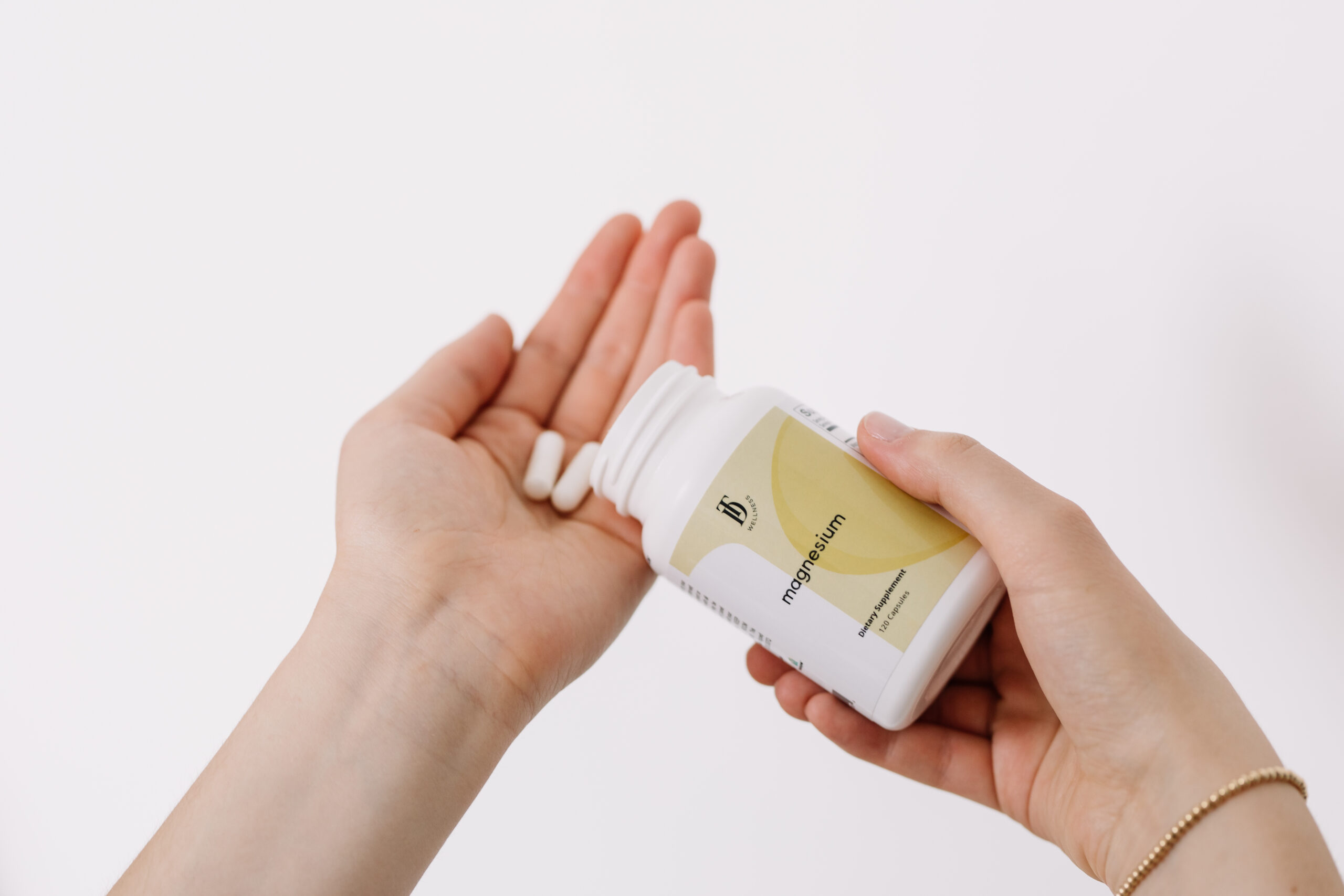What Is The Root Cause Of IBS? Read These 7 Common Causes

Have you struggled with digestive issues and pain for years, just to end up getting diagnosed with IBS? You may be put on medication or told to eat more fiber but the digestive issues never really go away fully. You think it’s just something you’re going to have to live with. You know, like running to the bathroom after every meal because when it hits, it hits. Your IBS may even interfere with your social life because you’re afraid to be away from the bathroom.
In this article, I’m sharing why I think the “IBS” diagnosis is a bunch of “BS.” We’ll discuss what the ROOT cause of IBS really is. Once you find out the root cause, you can find lasting relief. There are many different causes that fall under the diagnosis umbrella of “IBS”. It is not one single cause, so read below to learn some crazy facts about IBS that your doctor may have never told you about.
What is Irritable Bowel Syndrome?
When someone has Irritable bowel syndrome, aka IBS they may experience some or all of these symptoms: abdominal discomfort, change in bowel movements, diarrhea, constipation, bloating or gas.
IBS is one of the most commonly diagnosed digestive disorders. IBS is prevalent in around 10-15 percent of people. But it’s estimated that most people don’t seek medical attention for IBS. This is partly due to waxing and waning symptoms of IBS. IBS symptoms come in the form of IBS flare-ups or IBS attacks which can, unfortunately, have you setting up shop in the bathroom for some time. But then at other times, your bowel movements feel completely natural without any symptoms. Or perhaps, you take a laxative and your constipation resolves for 3-4 days. It can be a vicious cycle for some, and for others, it can be hard to determine triggers if it is happening every so often.
Symptoms of Irritable Bowel Syndrome
Commonly seen signs and symptoms of IBS include:
-
Altered bowel habits
-
Abdominal pain
-
Stomach pain while having a bowel movement
-
Alternating fecal consistency – can be watery or like hard-pellets
-
Constipation
-
Bloating and flatulence
-
Diarrhea
-
Abdominal pain associated with anxiety or mental stress
-
Intolerance to certain foods
-
Feeling drained or fatigued
What is the root cause of IBS?
It can be frustrating to not know what exactly has caused your IBS. Many doctors, unfortunately, do not have a proper answer to this question and simply medicate their patients to make IBS symptoms more manageable.
Unlike conventional medicine, the Functional Medicine approach looks to address the root cause for treatment. We don’t believe in covering up the symptoms like medications unless it’s necessary during the healing journey. If someone comes to me with a diagnosis of IBS, I am asking the question why? Why is your bowel irritable? Why are you prone to these symptoms?
So, let’s dive into the relationship between functional medicine and IBS and answer the question, “what is the root cause of IBS?’
Top Root Causes of IBS
Let’s start by stating that your IBS could have just one underlying root cause or it could have multiple. And though two people may present with similar symptoms, the cause of the symptoms could differ and therefore the treatment may differ.
1. Parasites, Bacteria Overgrowth, or Viruses and IBS
An infection in the gut due to parasites or viruses could contribute to IBS. Studies have shown that Blastocystis, Cryptosporidium, and Giardia are all linked to IBS, as well as viruses like the Norovirus. When your gut is fighting a threat, it not only damages the gut but can impair digestion and contribute to inflammation and a flare of symptoms. I test for viruses, parasitic pathogens as well as bacteria levels (both good and bad) on stool testing that I use in my practice and gut program. Though viruses are usually short-term, you can experience something called post-infectious IBS. This is when a viruses triggers IBS.
2. SIBO and SIFO – Gut Microbiome and IBS
Small intestinal bacterial overgrowth (SIBO) has gained increased popularity in the functional medicine world due to its implication for many gut conditions. The gut houses trillions of bacteria and SIBO occurs when harmful bacteria overgrow and travel up to the small intestine. SIBO symptoms are similar to IBS symptoms.
Studies actually suggest that this is one of the most common causes of IBS. In fact, up to 80% of IBS patients have SIBO. But they can also have IBS and other underlying issues as well. Treating SIBO can minimize or completely address your diagnosed IBS. I test people for SIBO using a breath test to determine if it is hydrogen SIBO, methane SIBO or a combination of both. Based on what type of SIBO you have will affect treatment.
Also, there is more literature and awareness surrounding Small Intestinal Fungal Overgrowth (SIFO) which can also cause IBS type symptoms.
3. Psychological Stress and IBS
Research shows an evident relationship between IBS and psychological stressors. In fact, many women with IBS have had a history of past traumas or extremely stressful events. In fact, a striking 80% of people with IBS are co-morbid with anxiety, depression, and other psychological conditions.
Ever felt nervous before an interview only to run to the bathroom five times? The way this occurs is through alteration in the brain-gut axis. When you feel stressed or anxious, it can interfere with your gut function, making it hyperactive. This hyperactivity flushes the intestinal content and causes the typical pain and loose stools of IBS.
4. Dysregulated Immune System and IBS
Several studies hypothesize that IBS patients have increased or unregulated immune function in their gut. The components of the immune system include inflammatory cells like eosinophils, cytokines like IL-1, and inflammatory proteins like C-reactive protein. These immune system players among others also alter the gut function by increasing gut motility, altering the gut microbiome, and hypersecretion. Hello, IBS.
5. Food Sensitivities or Food Allergies and IBS
Underlying food sensitivities and allergies could cause digestive symptoms. Because you can have multiple food sensitivities and sometimes the sensitivities are to fillers or artificial ingredients, it can be hard to pinpoint. Food sensitivities, usually develop when someone has a leaky gut. If you avoid the foods you are sensitive to temporarily while healing the gut, you will not react anymore.
6. Lactose Intolerance and IBS
If you don’t have the proper enzymes to digest lactose (found in dairy products), it could lead to stomach pain, bloating and diarrhea. In fact, studies show that in some IBS patients, taking away dairy products helped with symptoms.
7. Compromised Digestion
If you have compromised digestion, no gallbladder or gallbladder dysfunction it can also cause diarrhea when you eat fatty foods. Bile is needed to break down fats, and when you are lacking proper bile this can cause discomfort and symptoms. Also, people that have insufficient pancreatic enzymes to help break down food could also experience IBS.
Get to the Root Cause of IBS with Functional Medicine
For most people, irritable bowel syndrome goes on for years without a permanent solution. To deal with it effectively, you have to get to the root cause of IBS.
Get Your Gut Right
If you need access to a stool test, a gut health expert, and personalized protocols, the Get Your Gut Right program might be the right fit for you (available exclusively through TDW Community). This is a very comprehensive program that also focuses on nutrition, detox pathways, nervous system, clean environment, and more. Click HERE to learn more.
Stay Updated With Exciting News at Taylor Dukes Wellness!
We are always working on new ways to serve you on your health journey. Be the first to know about new offerings, health articles, and more by clicking here and filling out your information so we can be in touch.
Share This Post:
Your Wellness Deep Dive
- Be the first to learn about new healthy living resources, blog posts, and exclusive TDW offerings by getting on my insider list.
- Find healthy living products with ingredients you can trust – the same ones I personally use for myself and my family – in the TDW Shop. Check out our protein powders, electrolytes, supplements, and more!
- Get personalized support through the TDW Community. When you become a member, you get access to functional medicine expertise from me and my team, functional medicine lab testing and 1:1 consults, a digital library of exclusive wellness content, live monthly Q&As with me, and so much more!
YOU MAY ALSO LIKE:
Helping you get your gut right, improve energy, boost immunity, balance hormones, sleep better and look + feel your best
DISCLAIMER
PRIVACY POLICY
TERMS + CONDITIONS
ACCESSIBILITY
© 2025 Taylor Dukes Wellness
LEARN
SHOP
ABOUT
TDW Community
Free Guides
Blog
TDW Store
Fullscript
About Taylor
Press
Contact
COOKIE POLICY
SITE CREDIT
Trusted Products



